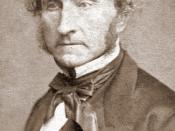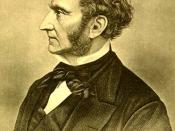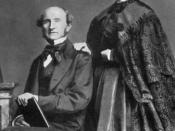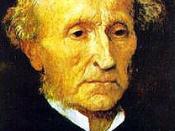According to the utilitarian theory, whether an act is considered right or wrong is dependent on whether it produces the best consequences. In the case of morality, the best consequence, or end, according to John Stuart Mill, is happiness or pleasure. Therefore, an action is right to the extent that it promotes happiness and wrong if it does otherwise. So how does reason fit into the utiliarian theory of morality? Mill attests that one requires reason to descren which acts produce the greatest amount of happiness, but not to determine if the act itself is right.
It is important to realize that the goal of Mill's theory is to create as much happiness (pleasure) as possible and not to please as many people as possible. In layman's terms, this is simply a case of quantity, not quality. Mill also feels that "some kinds of pleasure are more desirable and more valuable than others."
Therefore, one must use reason to distinguish which of the pleasures actually has more worth, or which will bring the greatest pleasure. This is determined by making a comparison where those who have experienced both pleasures establish an informed opinion on what actually has more worth.
There are some instances where what one person considers to be pleasurable is actually not "good" for the general realm of society. So is that individual correct in perpetrating those acts for his or her benefit? According to Mill, a "bad" act done by an individual for personal happiness does not produce enough pleasure to warrant its production. With this philosophy, the general well-being of the public is always taken into consideration, and an act which will bring unhappiness to others is not acceptable.
Another criticism of Mill's utilitarian theory is that if people are constantly seeking to maximize pleasure, then is pleasure all that is needed to fulfill one's life? This criticism implies that there is a clearly determined limit to happiness and once it is reached there is nothing greater than that happiness. Mill's theory simply says that one should bring about as much happiness as possible, implying that an "ultimate" happiness can never be achieved. Instead people should try to balance out the good and the bad to make their lives the best they could possibly be. Pleasure, in itself, does not fulfill once's life; instead, pleasure AND people's attempts at achieving happiness through carefully reasoned actions are what fulfills their lives.





